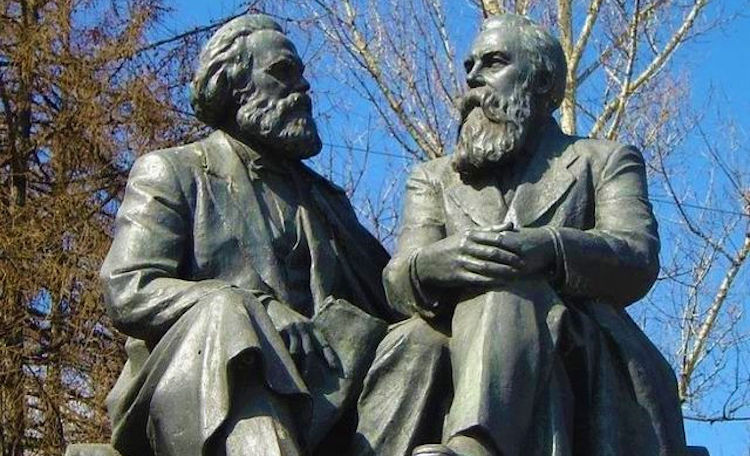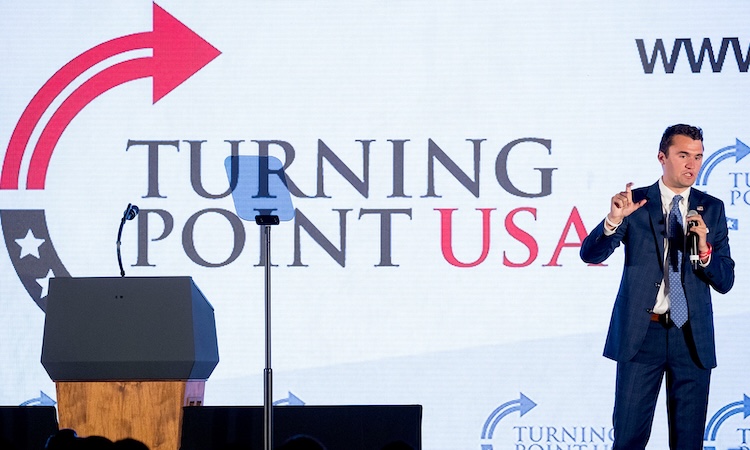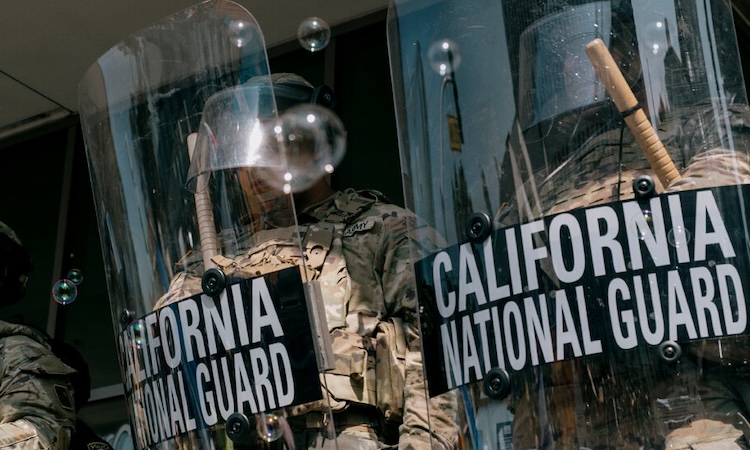The following article is reproduced from the Marx Engels Institute, with thanks.
*****
“A spectre is haunting Europe – the spectre of communism. All the powers of old Europe have entered into a holy alliance to exorcise this spectre: Pope and tsar, Metternich and Guizot, French radicals and German police-spies.
“Where is the party in opposition that has not been decried as communistic by its opponents in power? Where is the opposition that has not hurled back the branding reproach of communism, against the more advanced opposition parties, as well as against its reactionary adversaries?” (K Marx and F Engels, The Communist Manifesto, 1848, Preamble)
It is 175 years since the famous lines quoted above were first published as a dramatic preamble to the Communist Manifesto. One might expect, given the triumphalism of the bourgeoisie over the last 30 years, that the political representatives of the American bourgeoisie would not need to invest any more time in chasing this spectre.
After all, communism is dead and gone, buried by the revisionist traitors and their friends in the western ‘communist’ parties. Now capitalism is the only game in town and history is over.
Chasing this spectre, however, is exactly what the US House of Representatives spent time doing last week in a bill put forward with hysterical incoherence by Republican Floridian congresswoman Maria Salazar.
The bill itself is fairly uninteresting. It is the standard collection of wild lies about socialist countries that is taken straight from the notorious Black Book of Communism, a fascist-inspired piece of propaganda that was for many years seen as a fringe and far-right text.
Since the implosion of the USSR, however, there has been a persistent push from reactionaries in the USA and their proxies and allies (in places like Poland especially) to ensure that claims made in the black book become accepted fact: that of its claims are assumed to be true in order to equate communism with Nazism.
This sleight of hand is as much about rehabilitating fascism as it is about damning communism. For many decades, it wasn’t possible to do such a thing because the Soviet Union and socialist bloc represented a genuine power in the world that had to be taken seriously, and there were millions of people even in the west who had fought WW2 as an antifascist war.
With the disappearance of the east European socialist bloc and the generation that fought in that war, an opportunity has arisen for ultra-reactionary stooges of imperialism to put their falsified view of history out into public circulation.
Again, though, we must return to the question: why? Why would the Polish and Baltic reactionaries bother with this when the system they hated so much has been gone for over a generation?
The truth here is a multi-layered one. Firstly, we have to see clearly that the restoration of capitalism in the period 1989-91 across eastern Europe was a counter-revolution led by pro-capitalist forces. These bourgeois forces (and their backers in Germany, Britain and the USA) know very well that when your class has secured power it remains insecure, particularly when you are overseeing a wholly parasitical system, in which case the ideology of your enemy needs to be continually and mercilessly supressed.
This is particularly true in the Baltic States, where deindustrialisation and depopulation have risen exponentially in the period since capitalist restoration.
But why should this relentless anticommunism be so necessary in the USA, where the socialist movement is an almost wholly-owned subsidiary of the Democratic party, where the remnant of the once heroic Communist Party of the USA operates as a ‘vote Democrat’ organisation, and where the Bernie Sanders presidential campaigns turned into organisations for enriching the officials who ran them and providing careers for all manner of opportunists?
None of these organisations represent the remotest threat to US imperialism. And yet still the anticommunist hysteria within the US bourgeois media has only got more severe as time goes on.
To return to the above quote from the Manifesto: “Where is the party in opposition that has not been decried as communistic by its opponents in power?” This is certainly the case in the USA, where it is pro-Republican propagandists routinely brand any Democrat as “communist”.
This reached bizarre and hysterical heights during the administration of President Barack Obama, a man who submitted his cabinet appointments for approval by Citigroup, when quacks like Glenn Beck constructed all manner of stories about Obama being a deep cover Kenyan nationalist who was on a secret mission to destroy America.
You have to give Beck credit for being creative, at least. But this is the role of propagandists on both sides of the political oligarchy in the USA: they have to spin wild tales about their supposed opposition to keep the activist base of these parties invested in their own ‘side’.
The present wave of anticommunist propaganda is linked to a real decline in American capitalism, which has been accompanied by consistent polling showing younger Americans developing less favourable views of capitalism. And why wouldn’t they view capitalism less favourably, given that those born since the early 1980s have only known spiralling inequality (which even bourgeois think tanks have to concede might be a problem), increased levels of personal debt and decades of stagnating wages?
This picture is not likely to change anytime soon, and with this increasing insecurity, the US political system is becoming increasingly unstable also – even if that instability (in the form of Donald Trump’s presidency, for example) isn’t necessarily anti-capitalist in character. Nonetheless, such chaotic developments are threatening and destabilising to the status quo and to the secure rule of American finance capital.
The return of anticommunism to the centre of the political stage must therefore be seen in the context of rising dissatisfaction with American capitalism, even if that is not translating into the birth of a powerful Communist party as yet.
Meanwhile, the present economic crisis is necessitating an attack on the US working class by capital, which will need to dramatically increase the rate at which labour is exploited in order to restore profitability. An even more intense class war is coming, and anticommunism is a key part of the ruling class’s strategy in trying to keep the workers divided.
To prevent the American working class reaching dangerous conclusions, the bourgeoisie needs to make sure that the real alternative is as damaged as possible in the popular mind, so that any revolt that does break out can be channelled into safe avenues such as fake populism or support for some kind of American Bonapartism.
Anticommunism remains a vital weapon in the arsenal of our enemies, and so we must familiarise ourselves with its arguments (however outlandish) and be prepared to counter the lies of the ruling class about both our history and our future.
















